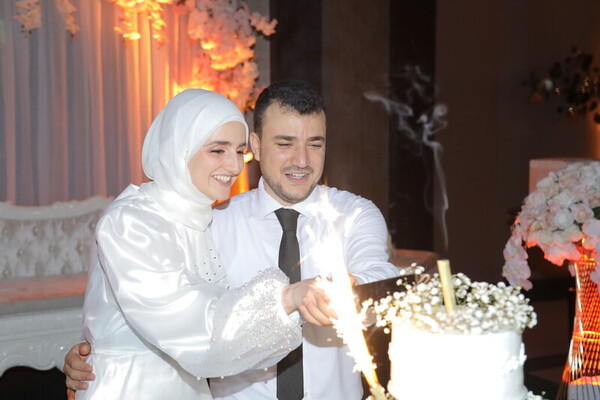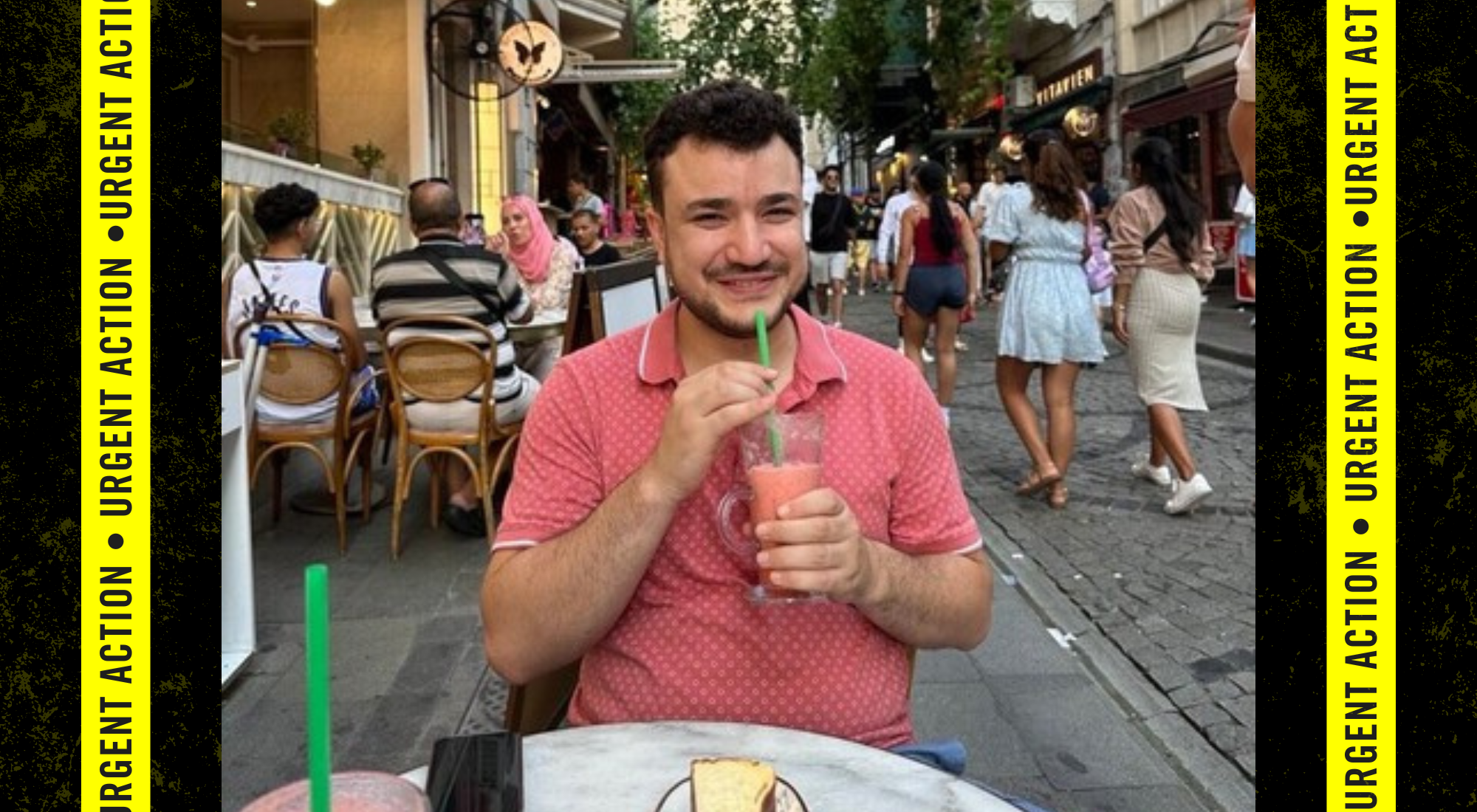On March 8, U.S. immigration officials unlawfully arrested and detained Mahmoud Khalil because he joined student protests at Columbia University. They took away his permanent residency using a rarely used law and started deportation proceedings against him.
At least nine other students have been targeted in similar ways for speaking out or joining protests. Hundreds more have lost their visas for unclear or unfair reasons.
We call on U.S. authorities to stop punishing students for their activism. They must end the unjust removal of visas and residency. Everyone has the right to speak freely, protest peacefully, get fair treatment under the law, and live free from discrimination.
Here’s what you can do:
Write to the Secretary of Homeland Security urging her to:
- Restore the visas and immigration status of all students and visitors targeted for their activism.
- Release all students currently held in immigration detention and stop any efforts to deport them.
- End the targeting of students based on their immigration status or for peacefully exercising their human rights.
Write to:
Secretary Kristi Noem
Department of Homeland Security
300 7th St, SW, Washington, DC 20024
USA
Email: dhssecretary@hq.dhs.gov
Salutation: Dear Secretary Kristi Noem,
And copy:
Mrs. Marybeth Krumm TURNER
Minister-Counsellor & Chargé d’affaires, a.i.
Embassy of the United States of America
490 Sussex Drive
Ottawa, ON K1N 1G8
Tel: (613) 238-5335 / 688-5335 (24h)
Students detained for peaceful protests
On March 8, 2025, U.S. immigration officials detained Mahmoud Khalil, a former Columbia University graduate student and permanent resident. He had served as a spokesperson and negotiator for students protesting on campus. Soon after, nine other international students were also detained. Like Mahmoud, they had joined protests or spoken out against the war in the occupied Gaza Strip and the U.S. government’s support for it. Their visas or residency status were revoked.
Some students chose to leave the U.S. rather than risk detention or deportation. One video shows immigration officers—plainclothes, mostly masked—intercepting a PhD student near her home in late March. They forced her into an unmarked car and did not identify themselves until after detaining her. She had recently co-authored an opinion piece in her school newspaper criticizing her university’s silence on the situation in Gaza. A Department of Homeland Security spokesperson later accused her of supporting Hamas but gave no evidence.
Another permanent resident who helped organize pro-Palestinian protests was detained at his U.S. citizenship interview.

Mass visa revocations without clear justification
On March 27, U.S. Secretary of State Marco Rubio said he had revoked at least 300 visas since January. He claimed the students caused disorder on campuses—but offered no proof. More recent reports say at least 1,300 students have lost their visas.
Many students say they were never part of protests. Some didn’t even receive a notice before their visas were taken away. A few may have had minor issues with law enforcement, like traffic violations. A lawsuit filed in California says the students were targeted because of their racial, ethnic, or religious backgrounds—including those from African, Arab, Asian, Middle Eastern, and Muslim communities.
Legal loopholes and rarely used law
The U.S. government is using a little-known part of immigration law to justify these actions. The law—8 USC 1251(a)(4)(C)(i)—lets the government deport noncitizens if their presence is seen as harmful to U.S. foreign policy. This part of the law has been used extremely rarely. Out of more than 11 million removal cases since 1990, it has only been used 15 times. Only four people have ever actually been deported under this rule.
Supporters of Mahmoud Khalil, including legal experts and scholars, filed a legal brief showing how unusual and extreme this use of the law is.
Human rights and constitutional protections
The U.S. has wide power to deny visas to people outside the country. But once someone is inside the U.S., they are protected by the Constitution. This includes the rights to free speech and due process.
All people—no matter their immigration status—have the human rights to speak freely, protest peacefully, receive fair treatment, and live free from discrimination. Students who stay in the U.S. face the risk of being locked up in immigration detention. Amnesty International has documented serious problems with this system, which does not meet international human rights standards.
Please take action as soon as possible until October 21, 2025. The UA will be duly updated should there be the need for further action.
























